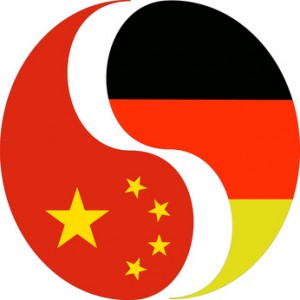Struggling companies in niche markets are attracting increasing numbers of Chinese companies to Germany
By London correspondent Zhang Hong
(London) – Germany has become the most popular destination and German niche companies the most popular investment targets for Chinese companies expanding in Europe.
It's a popularity contest Germany won quickly – and could continue winning for years to come.
China started knocking on Deutschland's door after the global market structure was rewritten by the 2008 financial crisis. Last year, China overtook the United States as home base for the largest number of direct, non-merger and non-acquisition investors in Germany.
The 158 projects signed by Chinese investor-companies in 2011 and the nine closed since the beginning of 2012 underscores a dramatic change since 2000, when the number of Chinese direct investments was exactly zero, according to the Berlin government-affiliated agency Germany Trade and Invest (GTAI).
An Ernst & Young survey in June found 63 percent of 400, major Chinese companies had spent their European-expansion money in Germany.
No wonder Germany is now China's most important European trading partner.
Leading the list of popular investment targets are what experts call the nation's "hidden champions" – powerhouse companies that lead in specific market segments, such as dye making and special construction machinery. These include companies that started faltering in recent years in the face of Chinese competition, making them prime acquisition targets.
Thomas Kautzsch, a manufacturing specialist at management consultant Oliver Wyman, said the financial crisis shattered a considerable number of hidden champions in Germany. And many reacted by running into the arms of Chinese rivals, not only for financial support but also because many German executives see future business potential in China.
"There are only two types of acquired companies – terminally ill and healthy," said Florian Fautz, head of investment banking for HSBC Trinkaus AG. "There are many such companies" that think "the future of the industry is in China and are willing to look for a Chinese investor."
The list of Chinese takeovers is expected to grow over the next three years, as about 430,000 family-owned businesses in Germany will have to find new leaders as their executives retire, another HSBC staffer in Germany told Caixin. These include up to 10,000 major companies.
"I know a lot of companies will be unable to find qualified successors" in their owner-families who are in a position to maintain the status quo, an HSBC Germany employee told Caixin.
The aging founder of German cement-pump manufacturer Putzmeister Group, for example, agreed to sell the company to Chinese rival Sany Heavy Industry Co. in January partly because no one in his family wanted to run the firm.
http://english.caixin.com/2012-10-10/100445610.html
Chinas Wirtschaft: Zukünftige Entwicklung ungewiss
2013/04/10
Beijing
Angaben des Generalzollamts zufolge stieg Chinas Im- und Exportvolumen in den ersten drei Monaten des Jahres um 13,4 Prozent auf 974,6 Milliarden US-Dollar. Das Exportvolumen betrug 508,8 Milliarden US-Dollar, das Importvolumen 465,8 Milliarden. Im Vergleich zum Vorjahr ist Chinas Exportvolumen in den ersten drei Monaten um 18,4 Prozent gestiegen, sein Importvolumen um 8,4 Prozent.
Während der Außenhandel mit der EU und Japan verhältnismäßig zurückging, verzeichnete das Im- und Exportvolumen mit den USA und ASEAN jedoch ein stabiles Wachstum, so das chinesische Generalzollamt weiter.

No hay comentarios:
Publicar un comentario